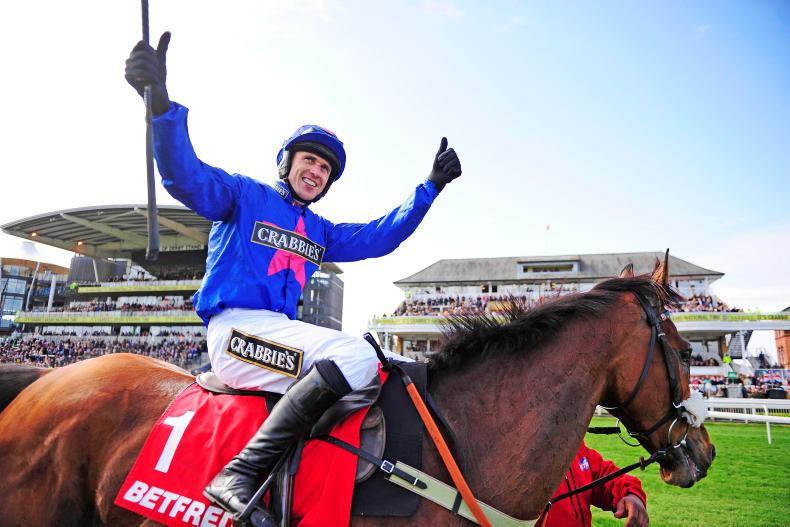IT must be the jumps season, because the decibel level of debate has been cranked right up.
While the flatties argue dully about whether Cracksman should or should not have a higher official rating than Enable, the arguments over the road at National Hunt Towers have gone into full histrionic mode after the revelation that Cue Card would have a new jockey for the Betfair Chase at Haydock, his trainer having decided “enough was enough” after a fall under regular rider Paddy Brennan in the Charlie Hall Chase at Wetherby.
The initial debate centred on whether Paddy Brennan was hard done by given he and Cue Card had notched up five Grade 1 wins as a partnership, a view held by plenty, especially those who hold loyalty as a watchword, and those who felt that falls at Wetherby and in the last two renewals of the Cheltenham Gold Cup could be laid squarely at Brennan’s door, and agreed that change might be for the best.
That quickly transmogrified into an argument about whether Cue Card should be racing at all given that he “owes connections nothing”, as the cliché goes.
The interesting thing about this set of two kerfuffles for the price of one is that all involved seemed to be absolutely certain that their view was the correct one, and that room for equivocacy was either scarce, at a premium, or non-existent.
THRIVE
I’m as big a fan of Cue Card as there is, and I would love to see him thrive on a racecourse, or failing that, to be retired with his reputation and wellbeing intact.
I hope his story will have a glorious ending when the time comes, but I do not profess for a moment to know how to draw that remarkable story to a conclusion, and nor does any other fan with a passing interest in his story.
We don’t want to see him fizzle out as a performer, or worse, but he won two Grade 1 chases last season, and was beaten narrowly in another on his final start, so it’s bizarre to suggest he’s not capable of dining at the top table, and he has been written off prematurely in the past. More than once.
The only truth is that Jean Bishop and the Tizzard family know the horse better than anyone, and are the only ones capable of making an informed decision about his future.
The “owes them nothing” mantra in particular is the greatest load of claptrap I’ve ever heard; no horse owes connections anything, and if we believe that horses who have attained greatness deserve retirement as reward, we are effectively branding the sport as a sort of punishment which participants can escape through achievement – an equine Running Man, if you will. If such a notion was ever accepted, then racing would be cut off at the roots.
OUTCRY
It’s worth remembering that there was public outcry over the non-retirement of horses like Red Rum, Denman, Kauto Star and Sprinter Sacre before they added further chapters to their own stories.
Red Rum’s regular rider, Brian Fletcher, himself said: “He came into the racing world a selling plater, and he may well go out of it competing in company that lowly. I very much fear that he will go on racing until he has descended as far as he has climbed.”
Those words were in print in 1976, before Red Rum achieved his third Grand National success and made himself arguably the most celebrated horse in racing history.
Of course, there have been great horses who have, in hindsight, continued racing after their ability had waned irreparably, but as a rule the connections of such horses have the best interest of their charges at heart and want them to run only when they believe that wish is justified.
Had Ginger McCain, Paul Nicholls and Nicky Henderson bowed to public pressure, the richness of racing’s tapestry would be greatly compromised, and many of those who profess to be lovers of the sport would never have got involved. I’m not at all sure that a win for Churchtown Boy in the 1977 Grand National would have fired my interest in the sport in quite the way that unforgettable contest actually did, and I’m glad for the cussedness of Ginger and his ilk for maintaining my love affair with the game.
